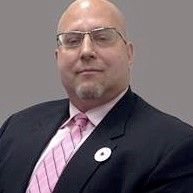Addiction Expert Says There's Hope for Opioid-Addicted Dentists
An addiction specialist with decades of experience counseling healthcare providers says addiction is a disease, and like any disease, it can be treated.

The Centers for Disease Control and Prevention doesn’t mince words when it discusses the problem of opioid addiction in the United States. The problem, according to the CDC, is nothing short of an epidemic.
Indeed, 28,000 people died of opioid overdoses in 2014, and the CDC estimates that at least half were due to prescription opioid pain relievers.
Increasingly, the focus around the opioid problem has turned toward healthcare providers and their role prescribing painkillers. Dentists are taking notice.
“Honestly, there is a lack of education around the disease concept of addiction and the differentiation between chronic and acute paid and good opioid prescribing habits,” said Joseph Garbely, DO, medical director at Caron Treatment Centers. “Now we’re finally having that conversation. But we haven’t had that conversation; it’s new.”
>>> MORE: See the results of Dentist's Money Digest's reader survey on opioid abuse.
One way dentists contribute to the problem is by not being careful enough in their prescribing, Garbely said.
“Dentists will write a larger quantity maybe than is necessary,” he said. “One reason is so they don’t get inundated with phone calls; the other reason is to make sure the patient has the amount they need.”
Garbely said dentists and other healthcare professionals are trained to think in monthly cycles, so it can be difficult to break out of that mindset when prescribing pain relievers. He said state regulatory boards ought to do more to establish clear guidelines for prescribing addictive drugs. Pennsylvania, where Garbely is based, is coming out with precisely that, he said, though Garbely said his state is on the leading edge.
However, dentists’ roles in the opioid epidemic extend beyond the prescription pad. Many dentists end up addicted themselves. Addiction can stem from stress, personal issues, or simply the access healthcare workers have to such drugs. Whatever the cause, Garbely said it’s often difficult for dentists and other healthcare professionals to ask for help.
“It takes far more courage to put up your hand and ask for help than it does to pretend there’s nothing wrong,” he said. “Eventually the disease, as it progresses, will take other things from your life, and ultimately your career.”
Garbely said many worry that their professional societies will ban them from practice. However, he said state dental and medical boards are doing a better job now of understanding that addiction is a disease and, like any disease, it can be treated.
“As a human being first they are entitled to have diseases,” he said. “And there is help.”
Some states require specific treatment up front. Dentists are often also asked to sign monitoring contracts that require after-care and random drug testing. Those requirements in fact give dentists an advantage.
Garbely also said dentists can protect themselves and their employees by making sure multiple staff members have a role.
“I think we have to empower office managers and other colleagues to intervene on the dentist in question if there are discrepancies in counts and scrips and things of that sort, or if they’re acting impaired,” he said.
Garbely also said the healthcare industry generally needs to do a better job at learning and identifying signs of impairment. He said sometimes it can be difficult to spot an addicted dentist.
“The last thing to go with every healthcare professional is work,” he said. “So there’s usually a path of destruction that leads to work and the other domains of one’s life. But I do think it’s important for colleagues and office managers to have an idea what impairment looks like.”
That can mean constricted or dilated pupils, long absences during the course of the day, or changes of behavior.
ACTIVA BioACTIVE Bulk Flow Marks Pulpdent’s First Major Product Release in 4 Years
December 12th 2024Next-generation bulk-fill dental restorative raises the standard of care for bulk-fill procedures by providing natural remineralization support, while also overcoming current bulk-fill limitations.